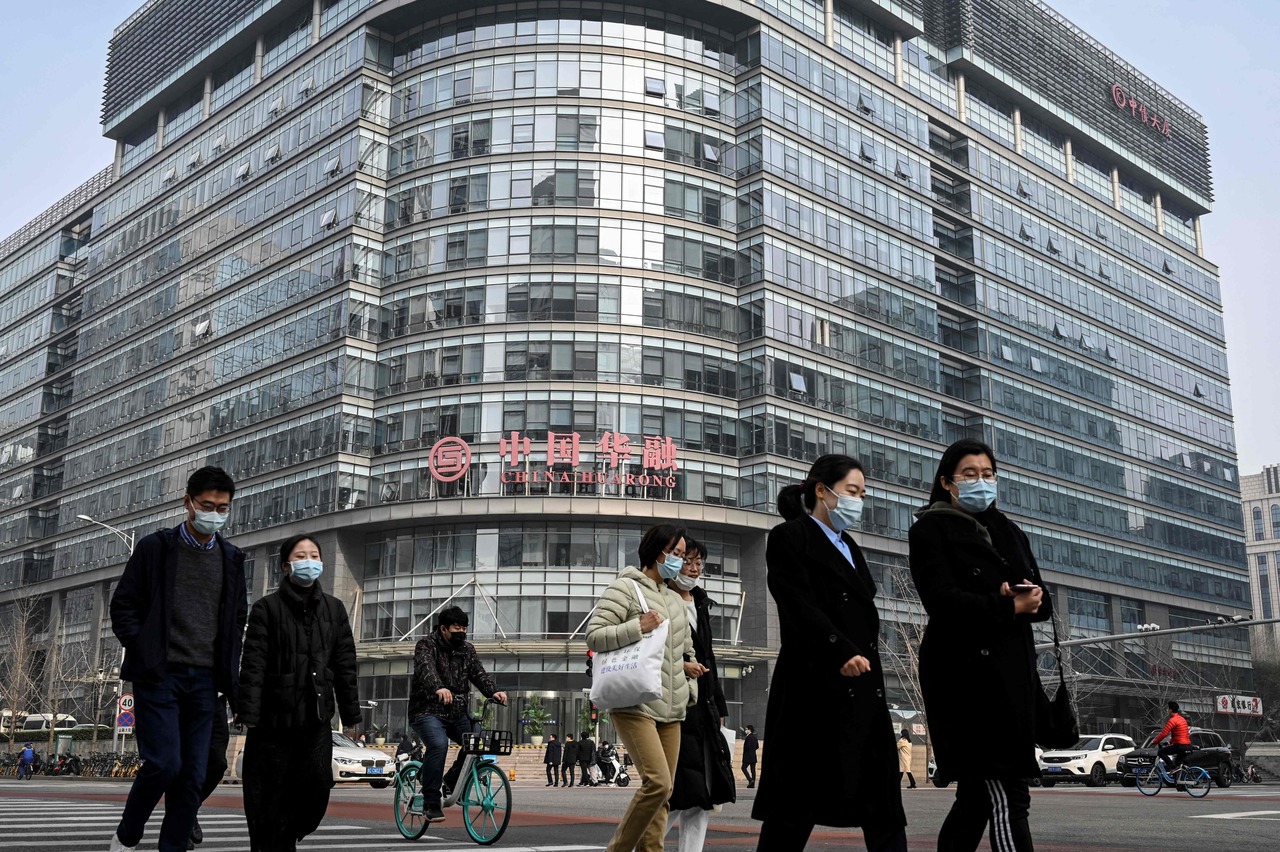Censors, legal hurdles stifle China's #MeToo movement
Sign up now: Get insights on Asia's fast-moving developments

The global #MeToo movement reached China in 2018 when a wave of women published allegations of sexual harassment against university professors.
PHOTO: AFP
BEIJING (AFP) - China's #MeToo movement has stumbled in the face of swift Internet censors, a patriarchal society and a legal system that places a heavy burden on the claimant.
Explosive claims this month by tennis star Peng Shuai that a former top Communist Party politician had sexually assaulted her marked the first time allegations have hit the top layer of government.
But her accusations were swiftly scrubbed from the Chinese Internet, and she has not been seen publicly since.
Others have faced the same fate, with an increasingly austere Beijing cracking down on any form of grassroots social movement.
The global #MeToo movement reached China in 2018 when a wave of women published allegations of sexual harassment against university professors.
Threatened by the prospect of an uncontrolled mass movement, the authorities quickly began blocking social media hashtags and keywords.
The phrase #MeToo is still blocked.
Prominent feminists face regular police harassment and detention - including activist Sophia Huang Xueqin, arrested in September for "inciting subversion of state power", according to Reporters Without Borders.
Although leader Xi Jinping has declared women are "an important force driving social development and progress", there are barely any women in key government roles in China.
Political leadership is a man's world, with only one woman in the Communist Party's elite 25-member Politburo.
Mr Xi has also been aggressively pushing a conservative narrative of women as mothers and wives.
Silenced
New legislation clarifying the concept of sexual harassment passed last year in China, but accusers still face major obstacles.
"You have to constantly prove you're honest... and that you're not using this issue to hype yourself," a woman who had made an allegation of sexual misconduct told AFP, asking to remain unidentified as she feared retaliation.
But for the accused, "it's actually very simple", she said. "He can just deny it and does not need to prove his innocence."
The cases that see the light of day are often shot down by courts - and a large majority of cases brought under sexual harassment charges are the accused pressing back with defamation charges.
Ms Wang Qi, a World Wildlife Fund employee who alleged online that her boss had forcibly kissed and repeatedly harassed her, was hit with a retaliatory defamation lawsuit from him in 2018.
She was ordered to apologise by a court which concluded she had insufficient proof and had "spread falsehoods" about him.
And a Beijing court this year dismissed the case of Ms Zhou Xiaoxuan, who accused state TV host Zhu Jun of groping her when she was an intern.
The court said Ms Zhou had provided insufficient evidence. Mr Zhu in turn sued Ms Zhou for defamation.
Courts require accusers to show evidence far stronger than that provided by the accused, often turning away witnesses close to the accusers including friends and colleagues, according to research from Yale Law School in May.
This discourages "employers and survivors from disciplining alleged harassers or speaking out, because they know they might be sued and be made to carry a heavy burden of proof", the researchers wrote.
Other women who come forward with stories of harassment and assault are subjected to personal attacks.
Prominent journalist Zhang Wen was accused of rape by an anonymous letter-writer in 2018, prompting other women to come forward with harassment allegations.
Mr Zhang hit back online at his accusers in an effort to discredit them in comments that were freely allowed to circulate.
They were heavy drinkers who dated many men, he wrote, adding that his original accuser "had changed boyfriends multiple times at university".
Political motive
But Beijing has allowed allegations to swirl when it suits them.
A female employee at e-commerce giant Alibaba alleged this summer that she had been sexually assaulted on a work trip by her manager and a client, in a case that drew widespread coverage and commentary across Chinese media.
The company was coming under intense pressure from state regulators at the time, and Alibaba fired the manager and vowed to crack down on "ugly" company culture.
Once the furore died down, however, police eventually dropped the case, saying the manager's act of "forced indecency" was not a crime.
And Canadian-Chinese pop star Kris Wu faced a rare arrest in August after a 19-year-old woman accused him online of rape - coinciding with an official crackdown on celebrity excess.
Equally, fallen Communist Party officials expelled for corruption are frequently accused of sexual misconduct - but it will "only be revealed after their downfalls due to political struggles, as part of the facts of their crimes," veteran Chinese feminist Lu Pin wrote in a recent essay on Peng Shuai.
"Meanwhile the women are used as evidence of their bad reputation."


